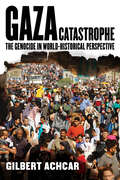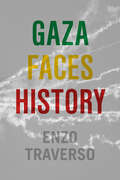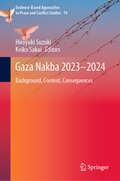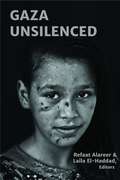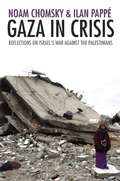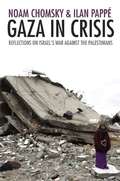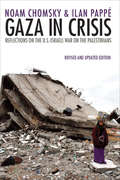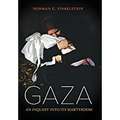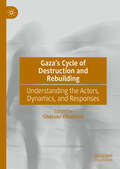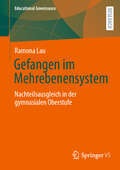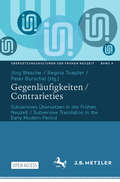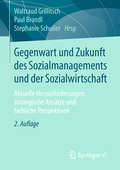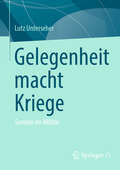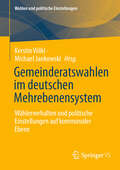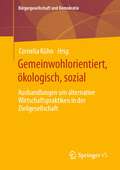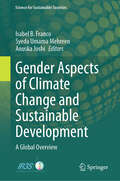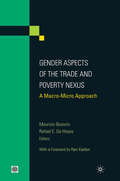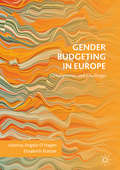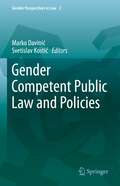- Table View
- List View
Gaza Catastrophe: The Genocide in World-Historical Perspective
by Gilbert Achcar"A left-wing materialist perspective that has faded in prominence in the Arab world in recent times."―The Irish Times"Exposes the bankruptcy of Western Liberalism."―JacobinFrom a foremost expert on the Middle East—a searing indictment of the forces that led to genocidal war on Gaza and its reverberations across the globe. The destruction rained on Gaza has been seen and accepted by many as a vengeful overreaction to the reckless Hamas-led attack on October 7, 2023. This book, however, argues that the new catastrophe befalling the Palestinian people is the culmination of a decades-long pattern that runs parallel with Israel’s inexorable shift to the right. It also contends that Gaza was the final nail in the coffin of the Atlanticist "international liberal order" before Donald Trump came back to the White House. Gaza Catastrophe reckons with the lethal consequences far greater than the Nakba of 1948 and the significance of a war waged by an advanced military-industrial state—with full US participation and open support from the West. Renowned political scientist Gilbert Achcar explores the dynamics of a complex historical process that culminated in the war on Gaza and wider conflict in the Middle East. Achcar offers critical insights on the genocide’s regional and international consequences, as well as radical critiques of Zionism, Hamas, and other state and non-state actors. This volume is essential to understanding the root causes of the violence destabilizing the entire region and the wider world, as well as the conditions required to bring it to an end.
Gaza Faces History
by Enzo TraversoIn this urgent, insightful essay, a respected historian places the Israeli-Palestinian war in context, challenging Western attitudes about the region.Is the destruction of Gaza only a consequence of the October 7, 2023 attack, or is it also the outcome of a long process of dispossession and eradication? Do Palestinians have the right to resist the occupation? Is talking about genocide anti-Semitism? Enzo Traverso goes to the root of the Israeli–Palestinian conflict by calling history into question and offers a critical interpretation that overturns the one-sided perspective from which we have become accustomed to observing what is happening in Gaza.Israel is usually described as a democratic island in the middle of an obscurantist ocean, and Hamas as a movement inspired by bloodthirsty fanaticism. The destruction of Gaza is reminiscent of the golden age of colonialism, when the West perpetrated genocides in Asia and Africa in the name of its civilizing mission. Its essential assumptions remain the same: civilization versus barbarism, progress versus intolerance. Alongside the ritual statements about Israel&’s right to defend itself, no one ever mentions the Palestinians&’ right to resist decades-long aggression. But if a genocidal war is unleashed in the name of fighting anti-Semitism, it is our own ethical values and political norms that are tarnished: the assumptions of our moral conscience—the distinction between oppressor and oppressed, perpetrators and victims—risk being turned upside down. The October 7 attack was terrifying, but it must be analyzed and not just condemned. And we must do so by summoning all the critical tools of historical research. Should the war in Gaza end in a second Nakba, Israel&’s legitimacy will be permanently compromised. In that case, neither American weapons nor Western media, nor the distorted and outraged memory of the Holocaust will be able to redeem it.
Gaza Nakba 2023–2024: Background, Context, Consequences (Evidence-Based Approaches to Peace and Conflict Studies #16)
by Keiko Sakai Hiroyuki SuzukiThis book is one of the first edited volumes on the current Israel/Palestine conflict—the Gaza Nakba 2023–24. It contains contributions from both young post-doctoral researchers and more seasoned scholars from Japan. These authors, with their rich experience of field work in the region and their interdisciplinary approaches, are able to provide critical analyses on the current breakdown of humanitarian norms, the dysfunctional state of international organizations, and the breakdown of conflict management and peace-building. The unique viewpoints of Japanese scholars are shared regarding their understanding of the critical developments in Gaza since October 7, 2023. Further, these chapters analyze the background of the conflict, focusing on popular sentiments, national identity, and historical memory in Israel/Palestine, and the importance of space and land as national and cultural symbols, using rich and updated written and visualdata from the region. This work significantly challenges prevailing arguments, as it avoids stereotyped understandings of the persistence of religious and ethnic hatred, the proxy relationships of global powers (e.g., USA) and regional ones (Iran), and regional rivalries over geopolitical and economic interests in the Middle East. Such arguments as these provide no more than a quick divide-and-rule type of solution, encouraging merely superficial diplomatic coordination among the major global powers rather than a real solution. Alternatively, this book provides a new framework for understanding the structure of the conflict, making way for solving the problem from the popular level, and delving deeply into reconsideration of the durability or non-durability of the state system in the Middle East and a Western originated liberal international order and norm in general. The book also discloses the severe reality that human rights in the Global South are often neglected. In this sense, the purpose of this work is to disclose the significance of the Gaza War as an iconic event which reveals all the contradictions, inequalities and injustices in a global historical context. This book is essential for anyone who wants a fresh and expert consideration of the Israel-Palestine-Gaza issue, which avoids the often parochial stereotypes that attend it in the West, and which views it through a global lens. Juan Cole, Richard P. Mitchell Collegiate Professor of History, University of Michigan
Gaza Unsilenced
by Refaat Alareer Laila El-HaddadDuring and after Israel's 2014 assault on Gaza, voices within and outside Gaza bore powerful witness to the Israeli attacks--and to the effects of the crushing siege that continued to strangle Gaza's people long thereafter. REFAAT ALAREER and LAILA EL-HADDAD are distinguished Palestinian writers and analysts from Gaza. In Gaza Unsilenced they present reflections, analysis, and images--their own, and those of many other contributors--that record the pain and resilience of Gaza's Palestinians and the solidarity they have received from Palestinians and others around the world. Other contributors include: Ali Abunimah, Ramzy Baroud, Diana Buttu, Jonathan Cook, Belal Dabour, Chris Hedges, Rania Khalek, Rashid Khalidi, Eman Mohammed, and many more.
Gaza in Crisis
by Noam Chomsky Ilan Pappé"Chomsky is a global phenomenon . . . he may be the most widely read American voice on foreign policy on the planet."--The New York Times Book Review "Ilan Pappé is Israel's bravest, most principled, most incisive historian."--John Pilger Described by a UN fact-finding mission as "a deliberately disproportionate attack designed to punish, humiliate, and terrorize a civilian population," Israel's Operation Cast Lead thrust the humanitarian crisis in the Gaza Strip into the center of the debate about the Israel/Palestine conflict. In Gaza in Crisis, Noam Chomsky and Ilan Pappé, two of the issue's most insightful and prominent critical voices, survey the fallout from Israel's conduct in Gaza and place it into the context of Israel's longstanding occupation of Palestine.
Gaza in Crisis: Reflections on Israel's War Against the Palestinians
by Noam Chomsky Ilan PappeIsrael's Operation Cast Lead was described by a UN fact-finding mission ("the Goldstone report") as "a deliberately disproportionate attack designed to punish, humiliate and terrorize a civilian population." The winter 2008-09 assault claimed the lives of 1,400 Palestinians and thrust the crisis in Gaza into the center of the debate about the Israel/Palestine conflict.
Gaza in Crisis: Reflections on the U.S.-Israeli War on the Palestinians
by Noam Chomsky Ilan PappéDescribed by a UN fact finding mission as "a deliberately disproportionate attack designed to punish, humiliate and terrorize a civilian population," Israel's Operation Cast Lead thrust the humanitarian crisis in the Gaza Strip into the center of the debate about the Israel/Palestine conflict. Chomsky and Pappé survey the fallout from Israel's conduct in Gaza and place it in historical context.
Gaza: An Inquest into Its Martyrdom
by Norman G. FinkelsteinThe Gaza Strip is among the most densely populated places in the world. More than two-thirds of its inhabitants are refugees, and more than half are under eighteen years of age. Since 2004, Israel has launched eight devastating “operations” against Gaza’s largely defenseless population. Thousands have perished, and tens of thousands have been left homeless. In the meantime, Israel has subjected Gaza to a merciless illegal blockade. What has befallen Gaza is a man-made humanitarian disaster. Based on scores of human rights reports, Norman G. Finkelstein's new book presents a meticulously researched inquest into Gaza’s martyrdom. He shows that although Israel has justified its assaults in the name of self-defense, in fact these actions constituted flagrant violations of international law. But Finkelstein also documents that the guardians of international law—from Amnesty International and Human Rights Watch to the UN Human Rights Council—ultimately failed Gaza. One of his most disturbing conclusions is that, after Judge Richard Goldstone's humiliating retraction of his UN report, human rights organizations succumbed to the Israeli juggernaut. Finkelstein’s magnum opus is both a monument to Gaza’s martyrs and an act of resistance against the forgetfulness of history.
Gaza’s Cycle of Destruction and Rebuilding: Understanding the Actors, Dynamics, and Responses
by Ghassan ElkahloutGaza’s Cycle of Destruction: Understanding the Actors, Dynamics, and Responses is an integrated, multidisciplinary, and comprehensive academic inquiry into Gaza wars and their drivers, actors, dynamic, paradigms, and responses. Unlike studies on the previous wars in Gaza, it seeks to present to the regional and global readership a different perspective towards the conflict—one that is authored by nearly a dozen Palestinian researchers and academics. It strives to steer away from the ‘Northern’-dominated research space to present an informative, analytical, and thought-provoking argument. The book provides a combination of theoretical, thematic, and topical analysis of the war. It is designed to guide the reader through the background and development of the events of the 2023 war. Put differently, the book’s objective goes beyond tracing the historical roots of instability in Gaza. Instead, it directly addresses the Gaza Strip’s contemporary context.
Gefangen im Mehrebenensystem: Nachteilsausgleich in der gymnasialen Oberstufe (Educational Governance #61)
by Ramona LauDie Gewährung von Nachteilsausgleich in schulischen Zusammenhängen ist ein komplexer Prozess, insbesondere die Gewährung von Nachteilsausgleich in der gymnasialen Oberstufe ist herausfordernd. Entsprechend ist es sinnvoll, das Mehrebenensystem Schule mit dem Fokus der Gewährung von Nachteilsausgleich in der gymnasialen Oberstufe mit einer qualitativen governanceanalytischen Forschungsperspektive in den Blick zu nehmen. Die Ergebnisse der vorliegenden Analysen bieten exemplarisch für Nordrhein-Westfalen Hinweise zur Erklärung der sehr niedrigen Gewährungsraten von Nachteilsausgleich für die schriftlichen Abiturprüfungen.
Geflüchtete in ländlichen Regionen Deutschlands (Studien zur Migrations- und Integrationspolitik)
by Birgit Glorius Johanna Fick Peter Mehl Stefan Kordel Hannes SchammannDie Open-Access-Publikation präsentiert umfangreiche empirische Analysen zu Halte- und Bleibeorientierung Geflüchteter und richtet den Blick dabei besonders auf die Situation der ländlichen Regionen Deutschlands. Migrations- und Integrationsforschung in Deutschland war bislang überwiegend auf Großstädte ausgerichtet. Durch den vermehrten Zuzug geflüchteter Menschen seit 2014 sehen sich jedoch auch Kleinstädte und Dörfer in ländlichen Regionen verstärkt mit Aufgaben der Aufnahme und Integration von Geflüchteten konfrontiert. Ziel dieses Buches ist es, empirisch fundiert zu beantworten, unter welchen Voraussetzungen und wie humanitäres Engagement und ländliche Entwicklung erfolgreich verbunden werden können und wie dies von Politik und Zivilgesellschaft positiv beeinflusst werden kann.
Gefährliche Nähe [German-language Edition]: Salafismus und Dschihadismus in Deutschland
by Klaus Hummel Michail LogvinovThis collection examines current, virulent Salafism and jihadism phenomena. Many claim that either Islam and violence or religion and terror go hand in hand. The contributors to this volume disrupt this claim, using social science methods to determine whether and under what conditions such a dangerous proximity evolves. The volume reveals which actors extremists target and introduces innovative analytical methods, including a process of coradicalization and an attitude-based approach to the study of Salafist networks.Salafism and jihadism are an important focus of inner-German security discussions. The Salafi proselytizing is more successful than ever, and the jihad in Afghanistan or Syria pulls Islamists from Germany.This collection offers an examination of currently virulent phenomena of Salafism and jihadism from different perspectives. It is sometimes claimed that either Islam and violence or religion and terror go hand in hand; the authors of this volume aim to show that this is not so. Using the methods of social science to determine whether and under what conditions such a dangerous proximity comes about, this book offers insight into which actors are being looked for by extremists to exploit and to use as self-fulfilling prophecies.To this end, the authors develop innovative analytical concepts: Among other things, a process of co-radicalization and an attitude-based approach to the study of Salafist networks are described.The book makes an important contribution to the current debate by not presenting the potentially dangerous proximity of Islam and violence as a social fact, but describes it as a factor that can be influenced and understood.Salafismus und Dschihadismus stehen im Mittelpunkt innerdeutscher Sicherheitsdiskussionen. Die salafistische Missionierung ist erfolgreich wie nie zuvor, und der Dschihad in Afghanistan oder Syrien zieht die Islamisten aus Deutschland an. Der vorliegende Sammelband beleuchtet aus unterschiedlichen Perspektiven die derzeit virulenten Phänomene des Salafismus und Dschihadismus. Weder soll damit plakativ eine Nähe von Islam und Gewalt, Religion und Terror behauptet noch eine solche pauschal geleugnet werden. Vielmehr wird mit sozialwissenschaftlichen Methoden erklärt, ob und unter welchen Bedingungen eine solche gefährliche Nähe zustande kommt, welche Akteure sie suchen, instrumentalisieren oder sie zur sich selbst erfüllenden Prophezeiung werden lassen. Zu diesem Zweck entwickeln die Autoren innovative Analysekonzepte: Unter anderem werden ein Prozess der Co-Radikalisierung und ein attitüdenbasierter Ansatz zur Untersuchung salafistischer Netzwerke beschrieben.Der Band leistet einen wichtigen Beitrag zur aktuellen Diskussion, indem er die gefährliche potentielle Nähe von Islam und Gewalt nicht etwa als soziales Faktum präsentiert, sondern als beeinflussbare Größe beschreibt und verständlich macht.
Gefühlte Zukunft: Emotionen als methodische Herausforderung für die Zukunftsforschung (Zukunft und Forschung)
by Axel Zweck Karlheinz Steinmüller Katharina SchäferWelche Rolle spielen Emotionen bei der Konstruktion, Kommunikation und Nutzung von Zukunftsbildern? Sind Emotionen primär eine Komponente, die Vorurteile transportiert? In welchem Maße sind Forschende selbst Emotionen ausgesetzt, die die Methodenwahl und die Ergebnisse beeinflussen? In dem Sammelband kommt die gesamte Breite der Thematik „Zukunftsforschung und Emotionalität“ zur Sprache, von den philosophischen Grundlagen bis zu methodischen Fragestellungen und Erkenntnissen aus der Praxis, die die enge Verschränkung von Kognition und Emotion in allen Phasen von Vorausschauprozessen belegen.
Gegenläufigkeiten / Contrarieties: Subversives Übersetzen in der Frühen Neuzeit / Subversive Translation in the Early Modern Period (Übersetzungskulturen der Frühen Neuzeit #4)
by Regina Toepfer Peter Burschel Jörg WescheTranslation und Subversion: Wie hängt beides zusammen? Das ist die Leitfrage dieses Sammelbands, der methodische Orientierungen und historische Studien zur Frühen Neuzeit in unterschiedlichen geographischen Settings und interlingualen Konstellationen vom 16. bis zum 18. Jahrhundert bietet. Translationswissenschaft, Romanistik, Japanologie, Germanistik und Musikwissenschaft sind die Disziplinen, die der Band zusammenbringt, um die besonders für frühneuzeitliche Übersetzungskulturen wenig gesehenen Gegenläufigkeiten in den Blick zu nehmen und auf subversive Übersetzung als Katalysator interkultureller Widerständigkeit, aber auch Unterwanderung scharfzustellen. Translation and subversion: how are the two related? That is the question pursued by this compilation of methodological orientations and historical studies on the Early Modern period in various geographical settings and interlingual constellations from the sixteenth to the eighteenth centuries. Bringing together a broad range of disciplines – translation studies, Romance studies, Japanology, German studies, and musicology – the volume takes a closer look at contrarieties hitherto little noticed, especially with regard to Early Modern translation cultures. In the process it focuses on subversive translation as a catalyst for intercultural resistivity as well as subversive action. Dies ist ein Open Access-Buch / This is an open access book.
Gegenwart und Zukunft des Sozialmanagements und der Sozialwirtschaft: Aktuelle Herausforderungen, Strategische Ansätze Und Fachliche Perspektiven
by Waltraud Grillitsch Paul Brandl Stephanie SchullerDas Buch analysiert, wie sich Sozialmanagement/Sozialwirtschaft disziplinär verorten und sich anstehenden Entwicklungsaufgaben widmen können. Die diskursive Annäherung an aktuelle Herausforderungen, Entwicklung innovativer theoretischer und praktischer Ansätze, Methoden und Konzepte künftiger Entwicklungsplanung und sozialmanagementorientierter Steuerung erfolgt durch Beiträge von ca. 30 FachautorInnen.
Gegenwart und Zukunft sozialer Dienstleistungsarbeit: Chancen und Risiken der Digitalisierung in der Sozialwirtschaft (Perspektiven Sozialwirtschaft und Sozialmanagement)
by Arne Manzeschke Carolin Freier Joachim König Barbara Städtler-MachDer Band skizziert und diskutiert den digitalen Wandel in der Sozialwirtschaft. Internationale Beiträge aus der Praxis und Wissenschaft Sozialer Arbeit sowie dem Gesundheits- und Pflegebereich beschreiben, wie digitale Technologien den Alltag von Beschäftigten und deren Klient*innen prägen (werden). Enorme Chancen und gleichzeitig erhebliche Risiken dieses Wandels werden dabei debattiert, etwa mit Blick auf die Arbeitswelten, Professionen, soziale Teilhabe und daraus abzuleitende ethische Implikationen.Den Leser*innen bieten sich Praxiseinblicke, wissenschaftliche Analysen, Handlungsempfehlungen und Reflexionspotentiale, um soziale Dienstleistungsarbeit im Heute und Morgen (mit) zu gestalten.
Gelegenheit macht Kriege: Sonden im Militär
by Lutz UnterseherGeleitet von einer verbreiteten Vermutung wird danach gefragt, ob die relative Schwäche eines Gegners oder die Wahrnehmung besonderer Verwundbarkeit des jeweiligen Kontrahenten, also von günstigen Gelegenheiten für einen Angriff, tatsächlich den Ausbruch von offenen Feindseligkeiten wahrscheinlicher macht.
Gemeinderatswahlen im deutschen Mehrebenensystem: Wählerverhalten und politische Einstellungen auf kommunaler Ebene (Wahlen und politische Einstellungen)
by Kerstin Völkl Michael JankowskiDas Buch gibt einen Überblick über die politische Einstellungs- und Wahlforschung auf kommunaler Ebene basierend auf empirischen Analysen. Mithilfe von Individualdaten zu den Gemeinderatswahlen in Nordrhein-Westfalen 2020, Hessen und Niedersachsen 2021 sowie Schleswig-Holstein 2023 werden zentrale Fragestellungen systematisch vergleichend untersucht. Im ersten Teil des Buchs liegt der Schwerpunkt auf dem kommunalen Wählerverhalten. Analysiert werden verschiedene Themenaspekte wie die lokale Wahlbeteiligung, die Wahlentscheidung zugunsten politischer Parteien und unabhängiger Wählergemeinschaften, aber auch spezielle Wahlpraktiken wie das Kumulieren und Panaschieren sowie die Rolle von Gemeinderatswahlen als potenzielle Protestwahlen. Der zweite Teil richtet den Fokus auf wahlrelevante politische Einstellungen. Untersucht werden die Wahrnehmung und Bewertung der Kommunalwahlsysteme, die Bedeutung politischer Sachfragen sowie das politische Interesse und Vertrauen in politische Institutionen auf kommunaler und nationaler Ebene. Das Buch richtet sich gleichermaßen an Studierende und Forschende, die sich für empirische Analysen politischer Einstellungen und des Wählerverhaltens auf kommunaler Ebene interessieren.
Gemeinwohlorientiert, ökologisch, sozial: Aushandlungen um alternative Wirtschaftspraktiken in der Zivilgesellschaft (Bürgergesellschaft und Demokratie)
by Cornelia KühnDer Klimawandel gefährdet die Existenzgrundlage zukünftiger Generationen. Damit zukunftsfähige und klimaverträgliche Gesellschaften entstehen können, sind tiefgreifende Änderungen von Produktionsprozessen, aber auch von Konsummustern und Lebensstilen notwendig. In diesem Sammelband werden Möglichkeiten und Grenzen der Ausweitung alternativer Wirtschafts- und Lebensformen erkundet. Dabei werden kleine Unternehmen und nachhaltige Bildungsinitiativen genauso betrachtet wie Regionen, Berufszweige und Großunternehmen auf ihrem Weg in eine nachhaltige Zukunft.
Gender And Class In English Asylums, 1890–1914
by Louise HideAn unprecedented number of people were sent to 'lunatic asylums' in the nineteenth century. But what was life like inside? How was order maintained? And why were so many doctors on the verge of a breakdown themselves? This book provides a glimpse into the lives of patients and staff inside two London asylums at the turn of the twentieth century.
Gender And Welfare States In East Asia
by Sirin Sung Gillian PascallContributors address questions about gender equality in a Confucian context across a wide and varied social policy landscape, from Korea and Taiwan, where Confucian culture is deeply embedded, through China, with its transformations from Confucianism to communism and back, to the mixed cultural environments of Hong Kong and Japan.
Gender Aspects of Climate Change and Sustainable Development: A Global Overview (Science for Sustainable Societies)
by Isabel B. Franco Syeda Umama Mehreen Anuska JoshiThis book addresses how sustainability discourse and advocacy can translate to impactful policies especially when bridging the divide between sustainability, climate change and gender. The book explores various areas, such as conservation, climate action, sustainable fashion, and corporate sustainability, and defines the existing sustainability gaps in the selected cases (country/sector/region). It highlights the value of sustainability science and climate change on innovative approaches to research, education, capacity-building, and practice to transform rhetoric into impact sustainability while encompassing cases from various industries, sectors, and geographical contexts. While emphasizing SDG 5, the book chapters also show the transboundary implications of gender equality and inclusivity to other sustainable development and climate change goals and targets. The contributions are exemplary in highlighting the relation of gender inclusivity in strengthening efforts to protect andsafeguard the world’s cultural and natural heritage and making cities and human settlements inclusive and safe (Goal 11), protecting, restoring, and promoting sustainable management of terrestrial ecosystems and reverse land degradation (Goal 15), ensuring access to affordable, reliable, sustainable and modern energy for all (Goal 7), promoting sustainable and inclusive economic growth with productive and decent employment for all (Goal 8), promoting inclusive and sustainable industrialization (Goal 9), adopt policies to reduce inequalities (Goal 10), ensure sustainable consumption and production pattern (Goal 12), addressing climate change impacts and building resilience (Goal 13), and ensuring availability and sustainable management of water and sanitation for all (Goal 6).
Gender Aspects of the Trade and Poverty Nexus
by Maurizio Bussolo Rafael E. De Hoyos Ravi KanburTrade liberalization can create economic opportunities for poor people. But are these opportunities available to men and women equally? Do the gender disparities in access to education, health, credit, and other resources limit the gains from trade and the potential benefits to poor women? This volume introduces the gender dimension into empirical analyses of the links between trade and poverty, which can improve policy making. The collection of chapters in this book is close to an ideal macro-micro evaluation technique that explicitly assesses the importance of gender in determining the poverty effects of trade shocks. Part I, relying on ex ante simulation approaches, focuses on the macroeconomic links between trade and gender, where labor market structure and its functioning play a key role. Part II concentrates on micro models of households and attempts to identify the ex post effects of trade shocks on household income levels and consumption choices. It also addresses questions about possible changes in inequality within households due to improved economic opportunities for women. 'Gender Aspects of the Trade and Poverty Nexus' will be invaluable to policy makers, development practitioners and researchers, journalists, and students.
Gender Budgeting in Europe: Developments And Progress
by Angela O'Hagan Elisabeth KlatzerThis book takes a broad look at conceptual and practical applications of gender budgeting in Europe. It comprises three linked sections that work through conceptual definitions of gender budget analysis. These sections explore how it can be framed and constructed as a gender equality policy; investigate case studies across Europe; and examine challenges for implementation. The first book of its kind, Gender Budgeting in Europe explores conceptual and methodological variations evidence in practice in Europe and the challenges of adoption and implementation in different political and institutional contexts. It brings together historical and current conceptual developments and tensions; approaches, methodologies, and tools in practice across Europe; activism, actors and agency and the engagement of formal institutions at all levels of government with feminist policy changes and feminist analysis and activists. This text is fascinating reading for students, scholars, policy makers and activists.
Gender Competent Public Law and Policies (Gender Perspectives in Law #2)
by Marko Davinić Svetislav KostićThis book offers a new perspective on public law and public policies. The collection of papers gathered here begins with an in-depth discussion on gender perspectives in constitutional law, which can support gender justice, but also perpetuate patriarchal norms. The book then analyzes the role of the European Ombudsman in the area of gender discrimination. Despite its limited jurisdiction, this institution has become a significant complementary tool in the protection of gender equality and the elimination of gender discrimination at the EU level. Particular attention is paid to the importance of mainstreaming gender into public policies. Thus, the legal and institutional frameworks of Spain and Serbia are presented, which can serve as an inspiration to other countries. Another important aspect covered in the book is an analysis of systemic differences between the average wages of women and men in the six countries of the Western Balkans. In turn, the book presents a discussion on female genital mutilation as a highly gendered crime based on extreme versions of rigid, patriarchal ethnic and religious norms and customs. It is analyzed through the lenses of the Istanbul Convention, as a tool for combating violence against women. Particular attention is paid to femicide, its definitions, forms, and phenomenological characteristics. Having been only recently acknowledged, femicide is still characterized by an inadequate judicial response in many countries. In this regard, a special focus is on German and Serbian experiences in acknowledging femicide and combating it through various measures. Finally, the importance of stalking laws is discussed, as stalking is a highly gendered crime that many states fail to combat adequately. The collection of essays offered in this book will be of interest to all those working in the field of public law, to policymakers, and to students and academics looking to broaden and deepen their research on various issues in public law and policies from gender perspectives.
